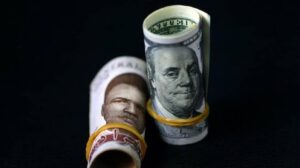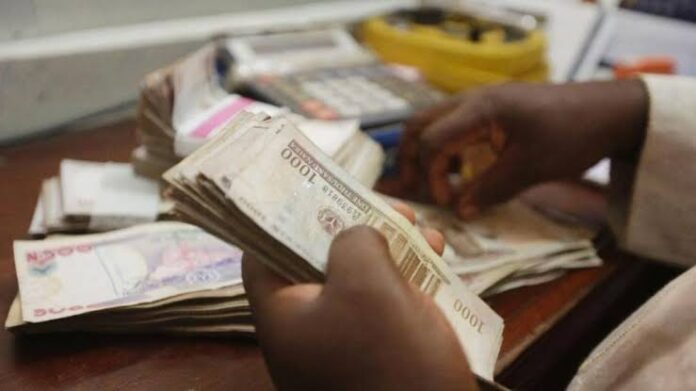The Nigerian naira has fallen to its lowest value in six months, trading at N1,625.88 to the US dollar on the official NAFEM market. This represents a 0.89% decline from the previous day’s rate of N1,611.34/$1.

The drop in exchange rates indicates a troubling trend for the Nigerian currency, which has been under continuous pressure. This crash occurred amid a reported hike in petrol prices across the country, which may add to the plights of businesses and ordinary Nigerians, further worsening inflation.
The FX turnover for the day stood at $205.76 million, a marginal drop of 1.84% compared to the previous day’s $209.61 million. The naira traded at a high of N1,640/$1 and a low of N1,400/$1, indicating significant volatility in the foreign exchange market.
The decline in exchange rates and FX turnover suggests a tightening of dollar liquidity, which could exert additional downward pressure on the Naira. The Central Bank of Nigeria (CBN) has been struggling to maintain the naira’s value, and further depreciation is possible if these conditions persist.
Nigeria’s official foreign exchange market experienced a marked decline in turnover in August, despite the initial Retail Dutch Auction conducted by the CBN. The total turnover fell to $3.25 billion, from $4.34 billion recorded in July 2024, representing a 25% decline.
The naira’s poor performance has been a recurring issue, with the currency emerging as the worst-performing in the world in the first half of 2024. Demand pressure, insufficient dollar liquidity, and market volatility have hindered efforts by the CBN to strengthen the currency.
The CBN governor, Yemi Cardoso, stated that the naira’s value depends on various factors, including fiscal policies. He added that the bank will continue to implement macroeconomic fundamentals to positively impact the market.
The current economic conditions, including the hike in petrol prices and the decline in FX turnover, may worsen inflation and exert additional pressure on the naira. The CBN faces a challenging task in maintaining the currency’s value and ensuring economic stability.




